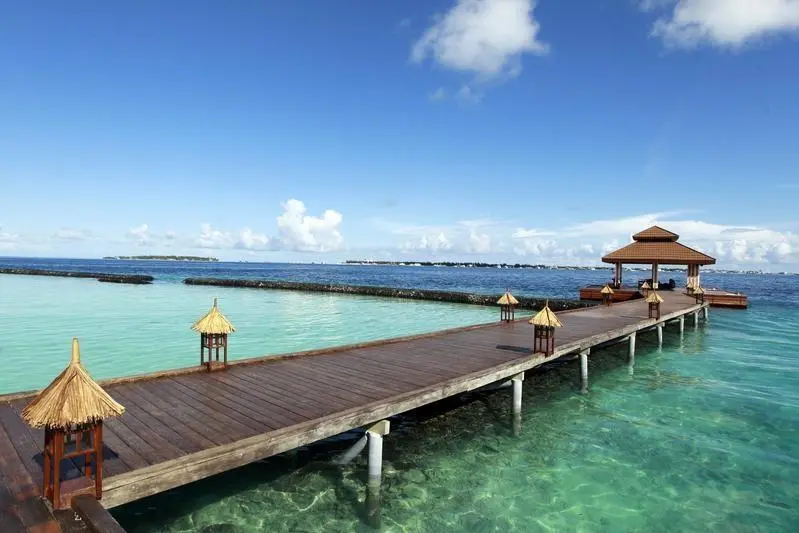PHOTO
The Maldives is working on a debt-for-nature swap, the country's environment minister said on Thursday, with funds freed up expected to go towards the preservation of coral reefs, mangroves and sea grass.
Debt swaps have become increasingly popular with debt-laden countries over the past two years. The swaps raise financing for environmental projects by exchanging existing debt for cheaper loans, typically with backing from a multilateral lender.
"One of the things we are trying to do is we need to know what is the value of our natural assets," Thoriq Ibrahim, minister of climate change, environment and energy, told Reuters, saying the country had started the process of valuing its coral reefs and would assess its mangroves and sea grass.
"That is the basis to start with," said Ibrahim on the sidelines of the COP29 U.N. climate talks in Baku, Azerbaijan.
Ibrahim said the government had signed an agreement in recent days with U.S.-based conservation group The Nature Conservancy, which has been involved in a number of debt swaps, from Indonesia to Belize.
The island nation has struggled with dwindling foreign currency reserves, sparking fears it could become the first country to default on Islamic sovereign debt, with a $500 million sukuk maturing in 2026.
Ibrahim said it had not yet been decided whether the debt earmarked for the swap would be the Islamic bond or bilateral debt or what the size of the swap was expected to be.
According to World Bank data, the country's total public and publicly guaranteed debt stood at $8.2 billion, equivalent to 116% of GDP, in the first quarter of this year.
About half of that is external debt, with a big chunk owed to China and India which have extended $1.37 billion and $124 million in loans, respectively, numbers from the Washington-based lender show.
(Reporting by Gloria Dickie in Baku; Writing by Karin Strohecker; Editing by Alison Williams)





















